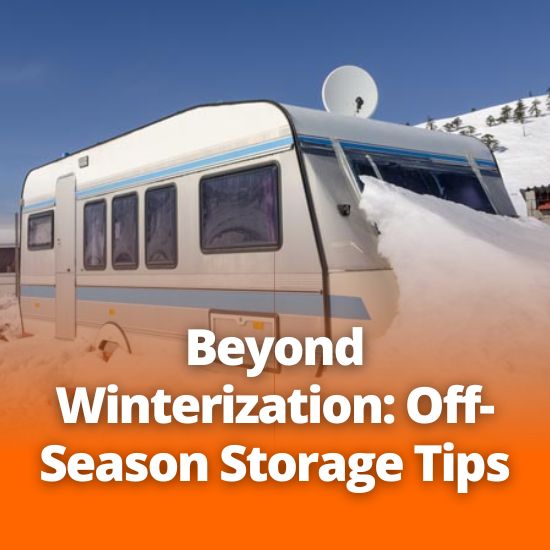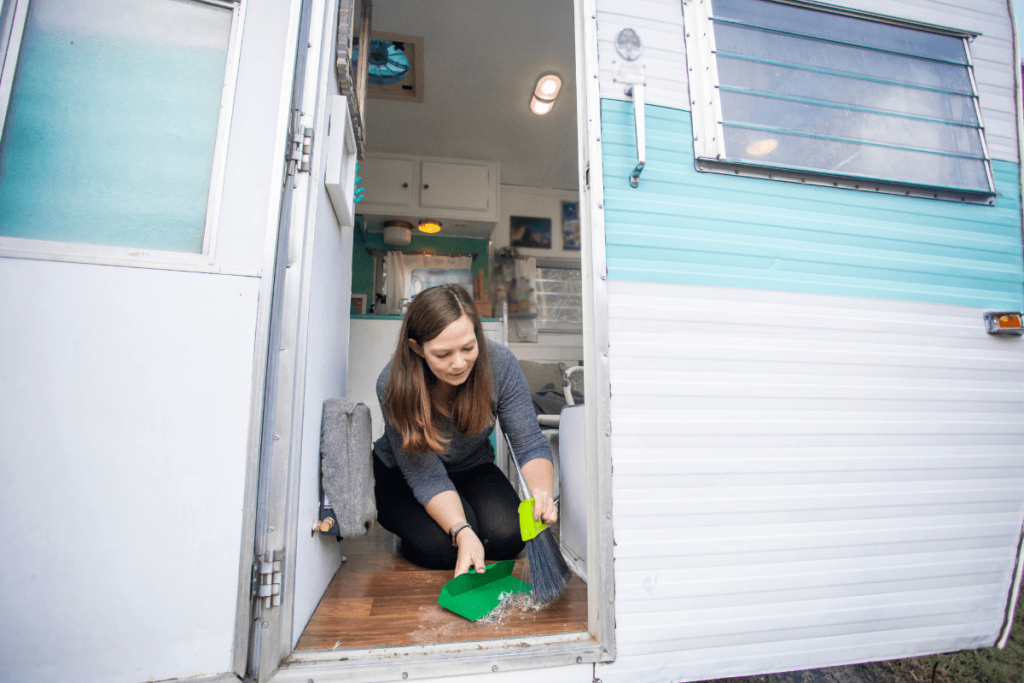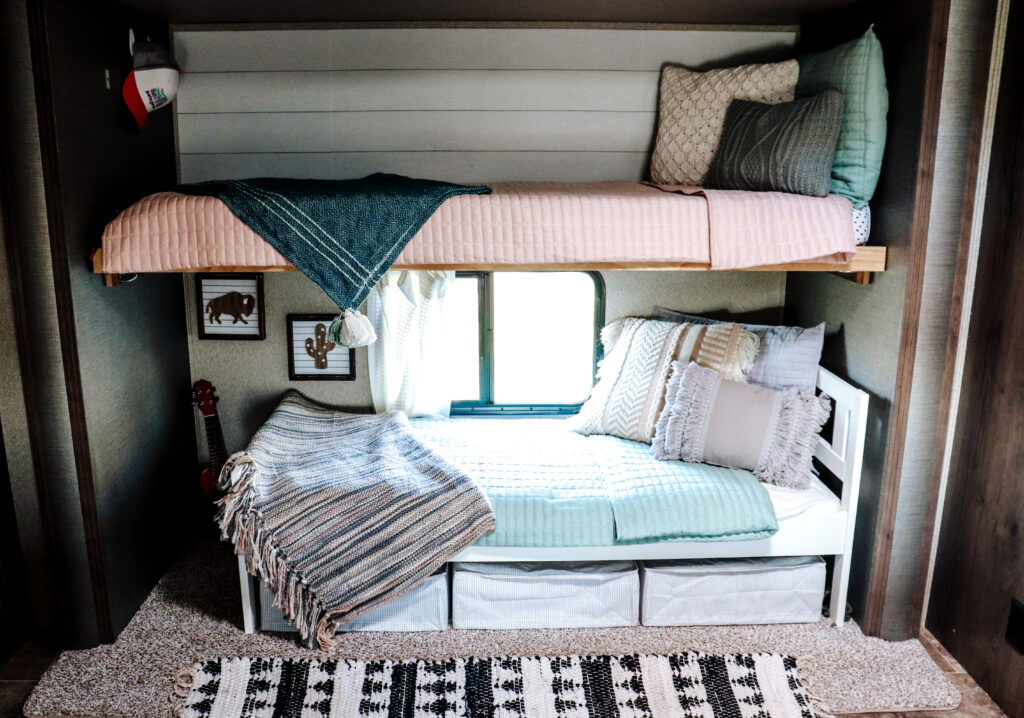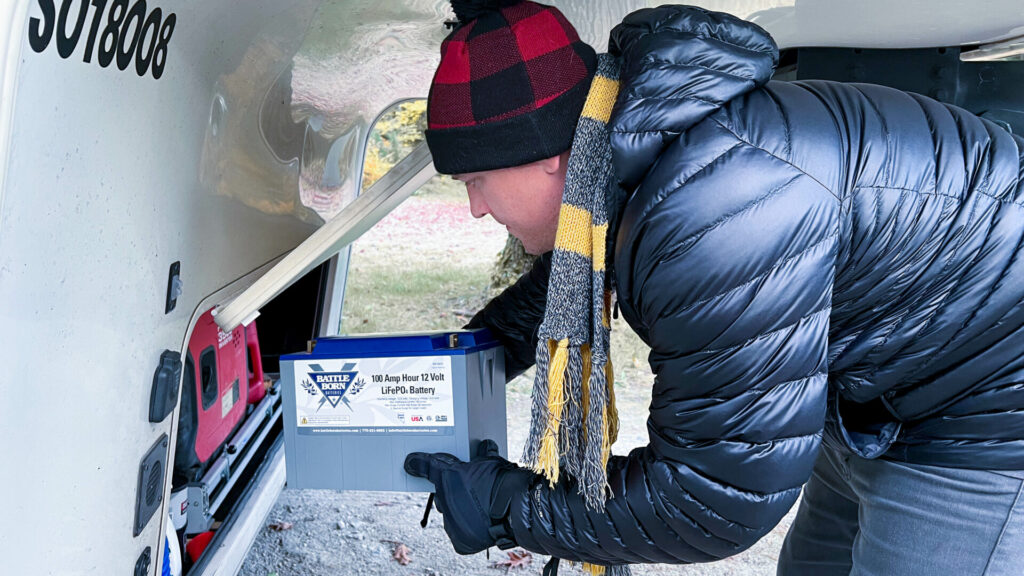
Beyond Winterization: Off-Season Storage Tips
We’ve gone over system preparation, how to keep your camper safe and in one piece over the cold months, we’ve also given you some tips on how to keep it secure from theft
But beyond that, consider: how should your RV be left over the winter to help give you the easiest transition back to camping?
Interior
Cleaning inside your trailer will help prevent things like mold, mildew, mice, and bugs from becoming problems in the new season. Leaving an impeccably clean interior will offer pests fewer hiding spaces, as well as reduce the temptation for them to enter in the first place.
Kitchen/Living Areas:
- Vacuum/mop all floors and carpets
- Remove all the food from cabinets and the fridge
- Wipe down the fridge inside and out, unplug, and leave the door ajar to prevent mold and mildew
- Use a sanitizing cleaner to wipe down all counters and shelves
- Lift couch and other seat cushions and vacuum underneath (vacuum any seams of chairs where you can’t remove cushions like recliners or driver/passenger seats), leave them propped up against each other or the wall to allow for airflow


Bedroom:
- Remove all bedding, clothing, and linens for laundering
- Vacuum any carpet and mop the floors
- Use a sanitizing cleaner to wipe down all counters and shelves
- Lift your mattress(es) if possible, and prop it against the wall or headboard to allow for airflow
Bathroom:
- Use a sanitizing cleaner to wipe down all counters and shelves
- Scrub your shower/tub, and toilet; look for any cracks that need to be filled to avoid mold and mildew
- Check vents and fans for any cracks or holes in screens.
Reduce moisture: Aside from winterizing your water system, there are other ways of reducing moisture in your RV. Silica packets in drawers and cabinets as well as other moisture absorbing materials can help you out (Damprid products are great for this and super affordable!) Or, if you’re storing your camper near a power source and can check on it often you can run a dehumidifier inside for a few hours occasionally throughout the winter.
Exterior
- Check and lubricate all your locks and hinges to avoid jams, breaks, and rust build-up.
- Remove, clean, and replace your A/C filters
- Clean and dry your awning according to manufacturer instructions
- Clean and dry any canvas or fabric siding (and be sure it is bone dry before folding it away)
- Wash the exterior and apply a coat of a good quality wax or protectant to defend against UV damage to rubber and vinyl components.
- Cover your wheels (there is debate on the value of tarping your hole RV: on one hand it protects against snow and debris, on the other it can trap moisture. If you do tarp up, be sure to use a breathable shell)


Batteries
To protect against the drastic temperature changes, here’s how to protect your batteries.
Remember to follow manufacturer directions for on-board generators.
- Have your batteries fully charged
- Turn off the camper’s disconnect and breaker switches
- Disconnect batteries by removing the negative cable first
- Be sure your positive and negative nodes are clearly labeled, adding your own if necessary
- Single batteries: Store fully charged somewhere warm and dry
- Do NOT store batteries on a concrete floor, they will die by the end of the season
- Larger system/multiple batteries: These will have specific instructions in your owner’s manual – If you don’t have it, you can usually contact the manufacturer or find it on their company site.
- In many cases it will be better to leave these installed, but most recommend you still disconnect the negative battery cable
- Check the battery charge regularly throughout winter and recharge when necessary
Seasoned campers know the value in taking the time to properly tuck-in your rig for the winter. Do you have any tips we missed on this list?